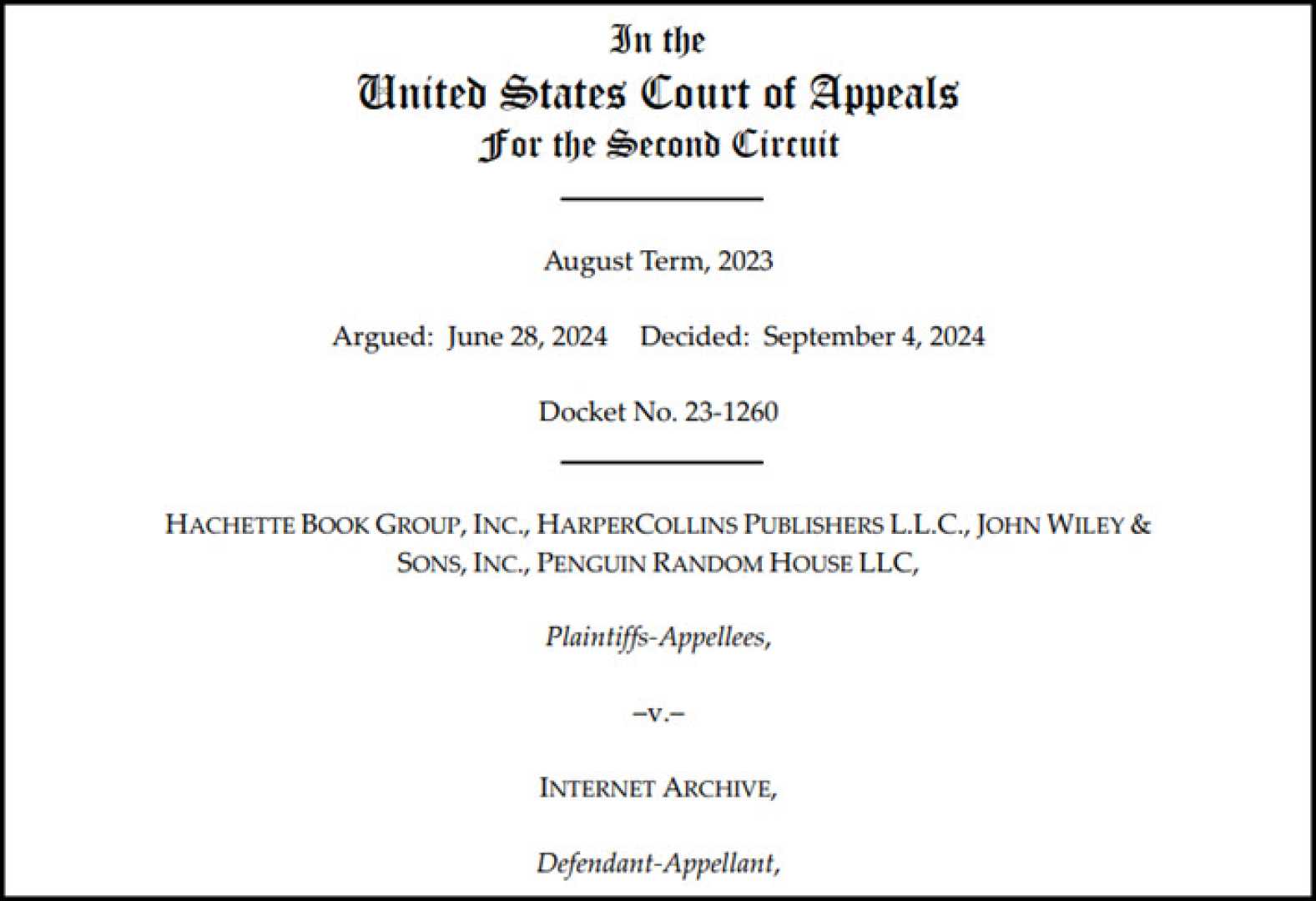Tech
Court Upholds Ruling Against Internet Archive’s Digital Lending Practices

A recent ruling by the Second Circuit Court of Appeals affirmed that the Internet Archive violated copyright laws through its digital lending practices. This decision is seen as a significant victory for major book publishers who argued against the organization’s approach to redistributing books without proper licensing.
The Internet Archive, a nonprofit dedicated to digitizing and preserving various forms of content, temporarily expanded its online library during the early days of the COVID-19 pandemic. This expansion allowed users free access to scanned books, leading to a long-running legal dispute regarding the legality of such practices.
In its defense, the Internet Archive contended that its actions fell under fair use laws and insisted that scanning books represented a transformative use that served the public interest. However, the court decisively rejected this argument, highlighting that allowing such practices would undermine copyright law and the market for books.
Maria A Pallante, president of the Association of American Publishers, expressed satisfaction with the court’s decision, emphasizing its implications for the broader literary and publishing communities. She remarked that the former practices of the Internet Archive attempted to reclassify unauthorized distribution of entire works as mere lending.
The court’s findings suggested that if the Internet Archive’s use of copyrighted works was deemed acceptable, it could lead to diminished sales for authors and legitimate libraries, thereby adversely impacting the finance and sustainability of the publishing industry.
The dispute initiated in 2020 has highlighted deeper issues within the digital access landscape, including the balance between access to information and protecting the rights of authors. Brewster Kahle, the founder of the Internet Archive, reiterated the organization’s commitment to supporting libraries and the importance of preserving literary works for future generations.












